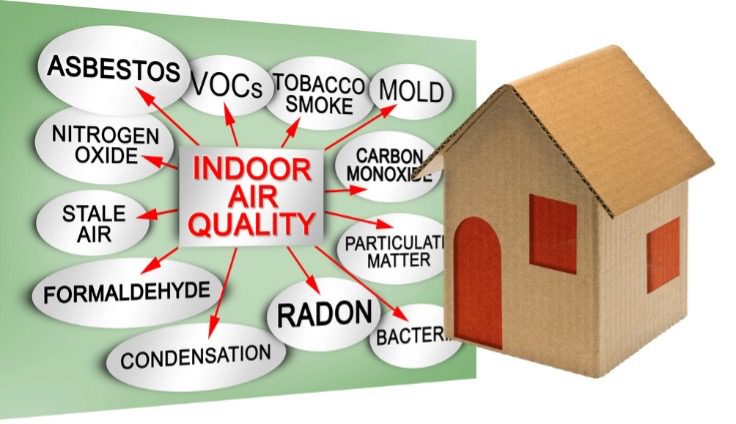The Role of Insulation in Indoor Air Quality

When it comes to creating a comfortable and healthy living environment, most people think about air purifiers, HVAC systems, and ventilation. However, one crucial factor often overlooked is insulation. High-quality insulation doesn’t just regulate temperature and reduce energy costs; it also plays a significant role in maintaining and improving indoor air quality (IAQ). At Koala Insulation of Superstition Springs, we’re committed to helping homeowners achieve cleaner, healthier indoor air through proper insulation solutions.
How Insulation Affects Indoor Air Quality
Insulation acts as a barrier between the indoor environment and the outdoor elements. Its ability to seal gaps, control moisture, and prevent the infiltration of pollutants directly impacts the air you breathe inside your home.
Key Ways Insulation Influences IAQ:
- Air Sealing and Pollutant Control
Proper insulation helps seal cracks and gaps where outdoor pollutants like pollen, dust, smog, and allergens can enter. By minimizing these air leaks, insulation reduces the amount of harmful particles infiltrating your living spaces. - Moisture and Mold Prevention
Moisture is a major contributor to poor indoor air quality because it fosters mold and mildew growth. Certain types of insulation, such as spray foam, act as both thermal insulators and moisture barriers, preventing condensation and keeping mold at bay. - Reducing VOC Exposure
Volatile Organic Compounds (VOCs) are chemicals released from building materials, paints, and household products. High-quality insulation materials with low or zero VOC content help maintain healthier air indoors. - Temperature Regulation and Humidity Control
Consistent indoor temperatures help manage humidity levels, reducing the risk of condensation, mold growth, and dust mites—all of which can compromise air quality. - Pest Control
Insulation seals off entry points that pests use to infiltrate homes. Pests can carry allergens and other contaminants, so preventing infestations contributes to better IAQ.
Best Insulation Materials for Indoor Air Quality
- Spray Foam Insulation
- Benefits: Creates an airtight seal, controls moisture, and prevents the infiltration of allergens and pollutants.
- Ideal For: Attics, crawl spaces, walls, and basements.
- Cellulose Insulation
- Benefits: Made from recycled materials, treated to resist mold, pests, and fire. Low VOC emissions.
- Ideal For: Wall cavities, attics, and hard-to-reach spaces.
- Mineral Wool (Rock Wool) Insulation
- Benefits: Naturally resistant to mold, fire, and pests. Excellent soundproofing and thermal performance.
- Ideal For: Walls, ceilings, and basements.
- Fiberglass Insulation (With Vapor Barriers)
- Benefits: Cost-effective, reduces airborne allergens when properly installed with vapor barriers.
- Ideal For: Walls, attics, and floors.
- Rigid Foam Board Insulation
- Benefits: High R-value, moisture-resistant, and helps prevent mold growth.
- Ideal For: Basements, exterior walls, and crawl spaces.
Common IAQ Issues Linked to Poor Insulation
- Mold and Mildew Growth: Caused by moisture buildup due to inadequate insulation.
- Drafts and Air Leaks: Allow outdoor pollutants to enter, affecting air quality.
- High Humidity Levels: Poor insulation can lead to condensation, promoting mold growth.
- Pest Infestations: Gaps in insulation provide entry points for insects and rodents.
- Dust Accumulation: Inadequate air sealing leads to more dust and allergens indoors.
Signs Your Home’s Insulation May Be Affecting IAQ
- Persistent Allergies or Respiratory Issues: Could indicate mold, dust, or poor air filtration.
- Musty Odors: Often a sign of mold growth behind walls or in attics.
- Uneven Temperatures: Poor insulation can create hot or cold spots, leading to condensation and poor air circulation.
- Excess Dust: Indicates air leaks bringing in outdoor dust and allergens.
- Water Stains or Mold Growth: Visible signs of moisture issues linked to insulation problems.
How to Improve Indoor Air Quality with Insulation
- Upgrade Old Insulation: Older insulation may degrade over time, becoming a source of dust, mold, and allergens.
- Seal Air Leaks: Combine insulation with proper air sealing around windows, doors, and ductwork.
- Control Moisture: Use moisture-resistant insulation materials in damp areas like basements and crawl spaces.
- Use Low-VOC Materials: Choose insulation products that emit little to no VOCs to maintain healthier air.
- Professional Assessment: Schedule an energy audit to identify problem areas affecting both energy efficiency and IAQ.
Why Choose Koala Insulation of Superstition Springs?
At Koala Insulation of Superstition Springs, we understand that insulation is about more than just temperature control—it’s about creating a healthier, more comfortable living environment. Our team specializes in eco-friendly, high-performance insulation solutions that improve both energy efficiency and indoor air quality.
What Sets Us Apart:
- Expert Assessments: We evaluate your home’s insulation and identify areas affecting IAQ.
- Customized Solutions: Tailored insulation plans based on your specific needs.
- Eco-Friendly Materials: We use products with low VOCs designed to improve air quality.
- Professional Installation: Our certified team ensures proper installation for maximum effectiveness.
Get a Free Estimate Today!
Concerned about your home’s indoor air quality? Call us at (480) 681-5151 or visit our website for a free estimate. Let Koala Insulation of Superstition Springs help you create a healthier, more energy-efficient home with expert insulation solutions.
Find Your Location


Get a quote


